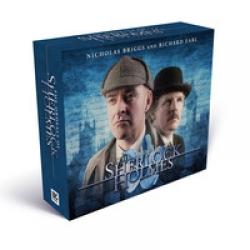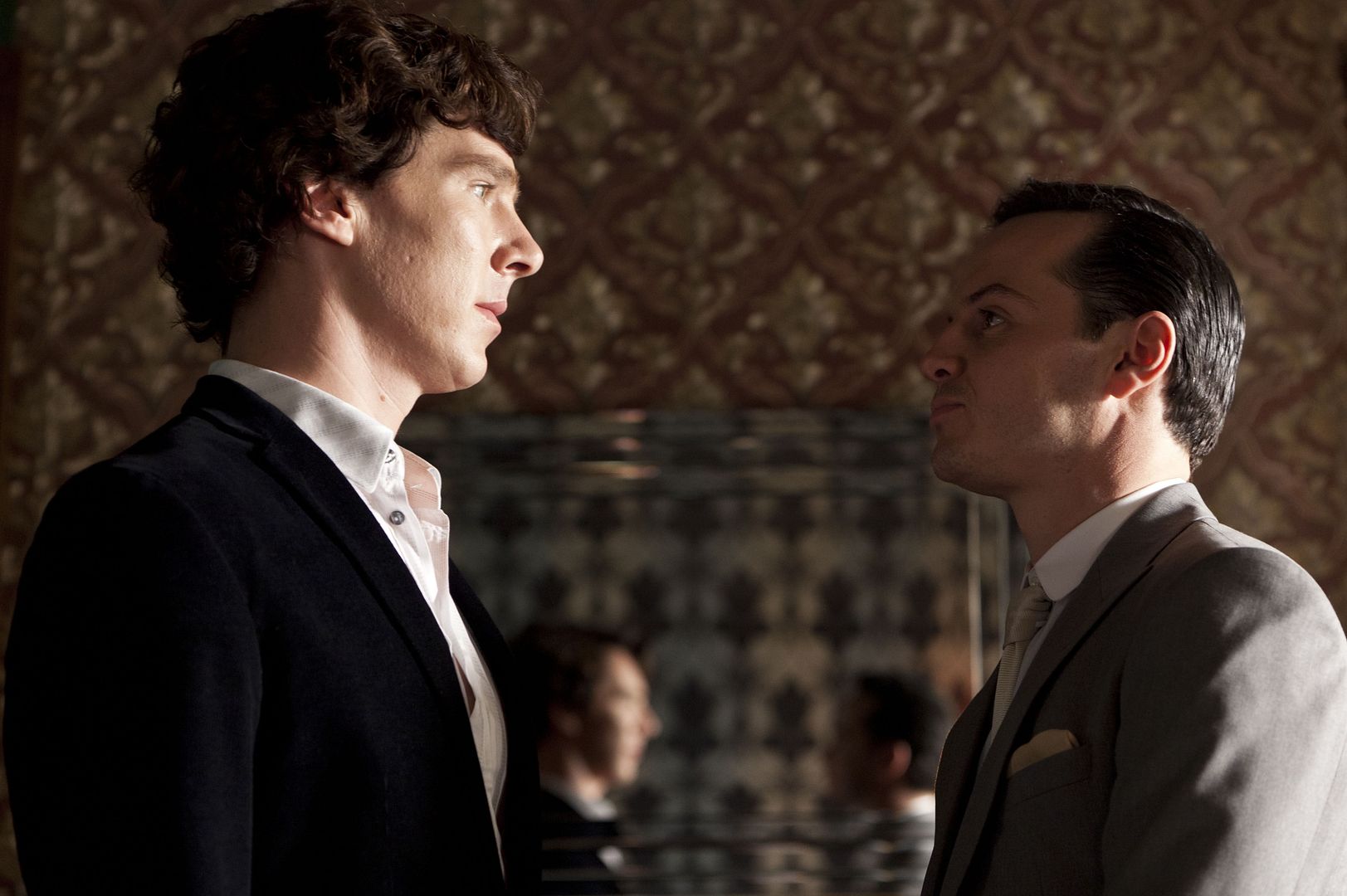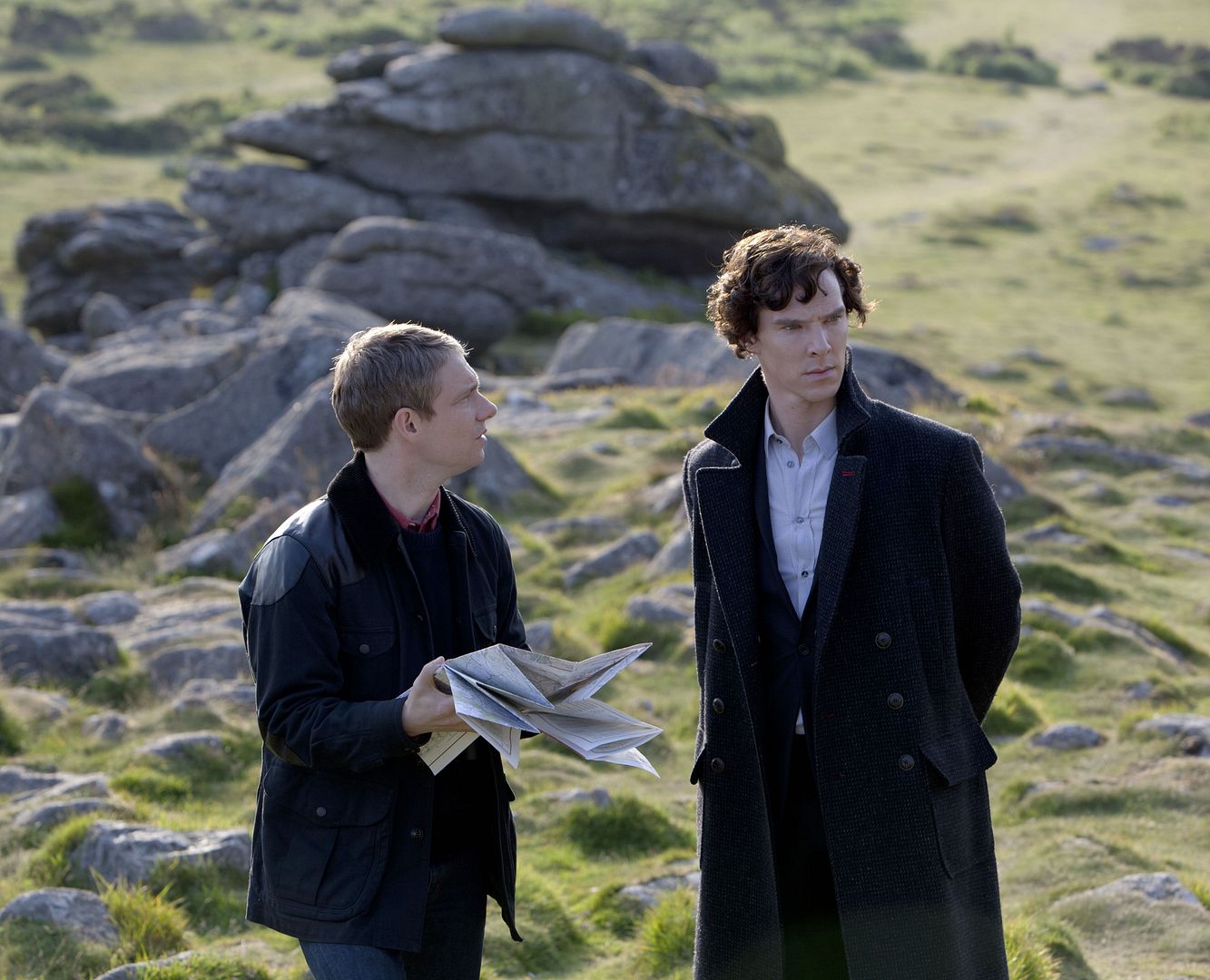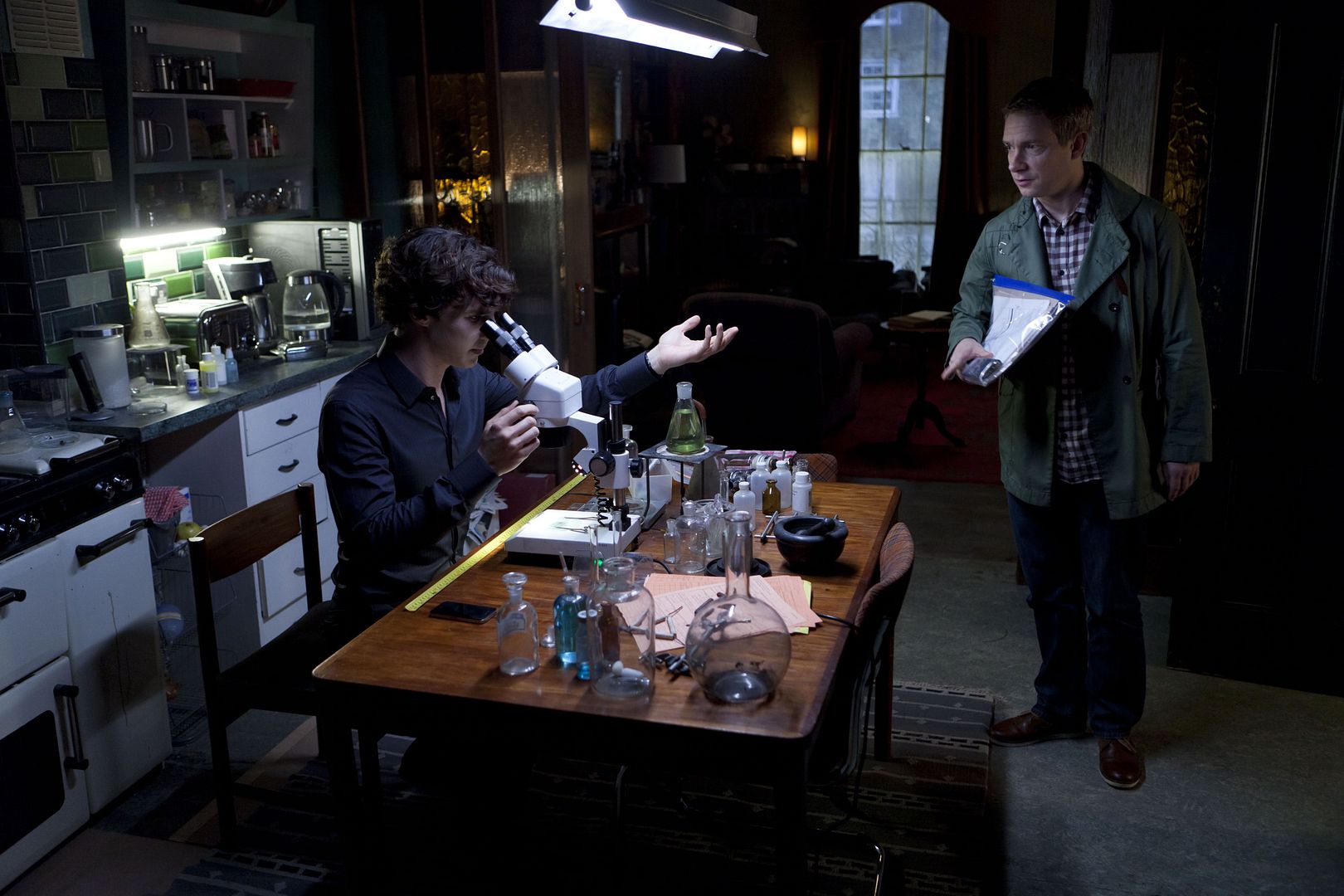The Judgement of Sherlock Holmes
The Judgement of Sherlock Holmes
Written By: Jonathan Barnes
Directed By: Ken Bentley
Cast: Nicholas Briggs (Sherlock Holmes/Sherrinford Holmes), Richard Earl (Dr Watson), John Banks (Inspector Lestrade, Colonel Sebastian Moran), Tim Bentinck (Mycroft Holmes), Gemma Whelan (Mary Watson), Jemma Churchill (Helena Eidelmann), Terrence Hardiman (Dr Esau Thorne), Nicholas Chambers (The Reverend Samuel Griffiths), Joannah Tincey (Miss Jessica Hendrick), Dai Tabuchi (Dorje), David Killick (Lord Colney, The Earl of Pettigree)
Published by Big Finish in November 2014Order from Amazon UK
This review is, almost embarrassingly, a short one. However, there is a reason for that. The plot would, I feel, take far too long to summarise to a satisfactory standard so I decided to merely talk on the cast and my overall verdict on the piece. Moreover, as a reviewer, I had a large amount of enjoyment out of this adventure when I first heard it. Therefore, I wish to leave that experience for those who wish to listen to this intricate story without knowing too much about it beforehand.
To those who are familiar with Sir Arthur Conan Doyle’s detective works, they will know that Sherlock Holmes stories are structured in such a way as to keep you listening intently and on the edge of your seat the whole way through. Big Finish’s take on this iconic character does exactly that, regardless of whether you have encountered their interpretation before.
After the apparent demise of Sherlock Holmes, Doctor John Watson retires and settles down into a life of ostensible simplicity. However, after unexpectedly encountering his old friend alive and well, Watson begins to, in part, unpick the pieces of what happened in the time since they last worked together. However, it gradually becomes clear why Holmes asks his former partner to assist him in taking down the events he chronicles, as the plot wends its way to a dramatic climax.
It is interesting to note that even from the beginning of Watson’s introductory narration there are references to adventures undertaken and plans thwarted that have (to my knowledge at least) not been discussed. This makes for interesting listening, keeping attention focused on the words even to hear a hint on any of these additional tales, even if no such word comes. The opening monologue serves as a useful and welcome lead in to the main plotline, establishing the time period and Doctor Watson’s current circumstance.
The plot, though woven through with, what might seem to be, complex and numerous interlinking threads, pulls you along with it, allowing the listener to be taken in by the characters, the auditory landscapes and the spectacle of a story that takes you through the trials and tribulations of Holmes, Watson and various other characters.
All performances to be found in this adventure are confident and well delivered, with Briggs as Holmes and Earl’s Watson having an immediate chemistry from their first interactions, regardless of whether you’ve heard their preceding adventures. The cast all interact well with each other, with the result feeling almost cinematic in nature and enabling the events to unfold with occasional unanticipated results (a change from the stereotypical and possibly predictable murder mystery that might be associated with Holmes). The piece, as a whole, interlinks what could be considered as incongruous elements into a story that allows for the listener’s imagination to navigate locations that are, to say the least, at times, unusual.
The score featured in this adventure is second to none, though at points it is slightly too loud (particularly the main theme). However, even at the points where it is not present, the ambience and sound design make up for the lack of score, building the atmosphere and settings in a realistic manner. Speaking of the sound design, the landscape is mapped out in a way that makes the world the characters inhabit even more believable, from the carriages and horses to the weather and the elements.
Regardless of whether you’ve heard the Big Finish interpretation of Sherlock Holmes or not, I’d suggest you give this adventure a listen. The amount of detail and effort that has been put towards replicating the style, atmosphere and characterisation in Doyle’s works is evident, with the company’s own additions and casting choices improving on what might be considered a pre-existing formula.

 Sherlock - The Reichenbach Fall
Sherlock - The Reichenbach Fall





